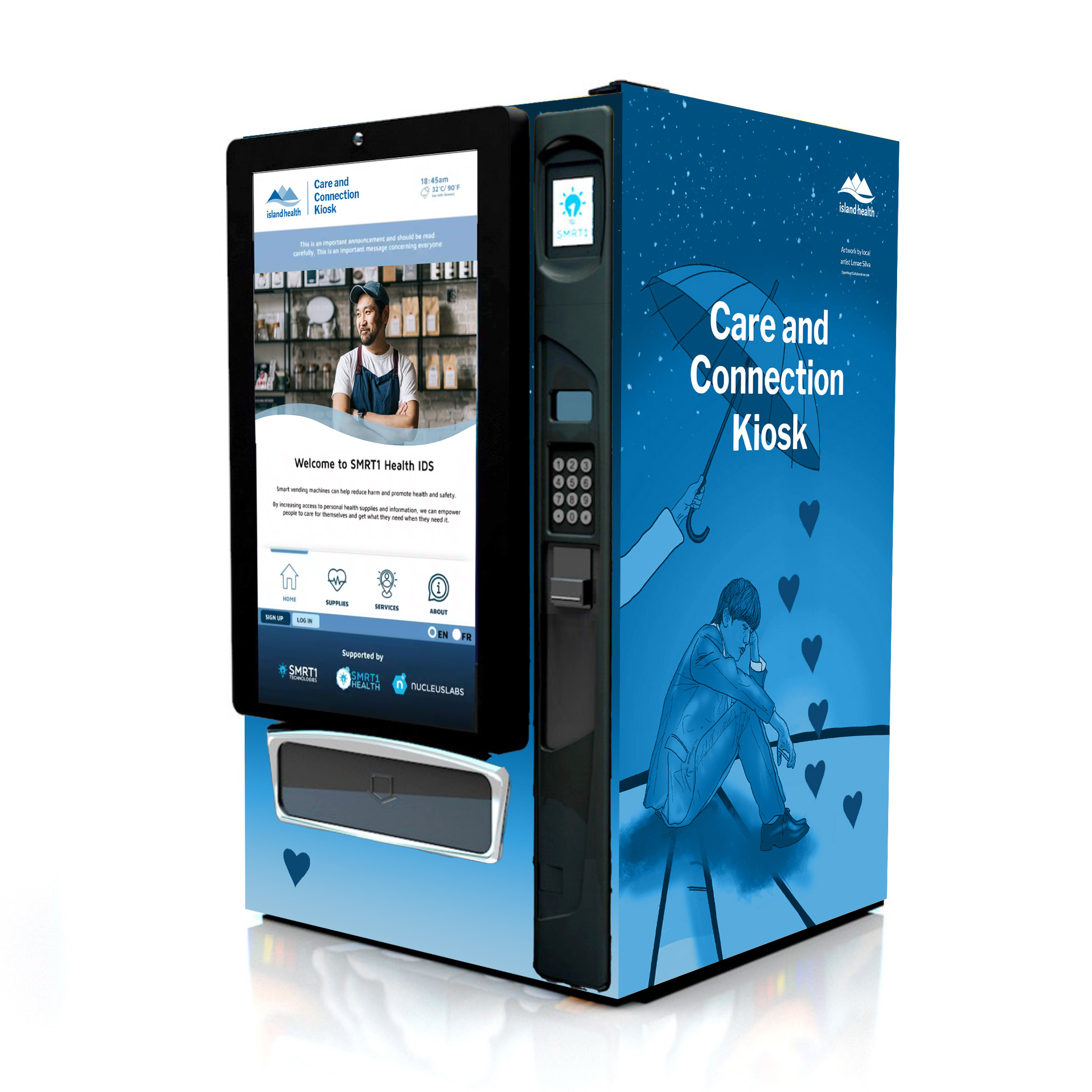Island Health is introducing three Care and Connection Kiosks at hospitals in Campbell River, Nanaimo and Victoria offering community members an innovative way to access free, life-saving, harm reduction supplies and information about mental health and substance use services, supports and treatment.

The Care and Connection Kiosks will electronically dispense discretely packaged harm reduction items including condoms, wound care supplies, naloxone kits, take-home drug testing strips, and syringes and safe disposal containers. Each kiosk will be located outside the emergency departments at North Island Hospital - Campbell River, Nanaimo Regional General Hospital and Victoria General Hospital. The kiosks are an alternative for people who currently visit emergency departments seeking harm reduction supplies and services, and the supplies offered through the kiosks are those most commonly requested from the emergency department.
"We know that shame and blame can keep people who use drugs from asking for help and not accessing the means they need to stay safer – which can often be fatal,” said Jennifer Whiteside, Minister of Mental Health and Addictions. "These new Care and Connection Kiosks are discreet and always open, making it easier for more people to get the life-saving supplies and treatment information they need where and when they need it."
“Stigmatization of substance use has led people to consume and die alone, and sadly, people who use alone in our communities are the most at risk of dying from unregulated substances,” says Dr. Réka Gustafson, Island Health’s vice president, Population and Public Health and chief medical health officer. “Substance use affects the health of our population in multiple ways, and our responsibility is to care for people in a way that will work for them.”
In addition to harm reduction supplies, the kiosks will contain information on substance use treatment, mental health supports, community resources, and how people can connect to local services. Each kiosk will be maintained by a new full-time peer support or addiction and recovery worker who will ensure the kiosk is well-stocked, maintain proper syringe disposal, and help ensure patients in hospital are able to connect to substance use supports, offering a personal connection.
As someone who has been doing outreach work in the community for several years in Campbell River and who openly shares his past struggles with substances, Andy Speck, ‘Namgis First Nation, is well suited for the new role associated with the kiosk at North Island Hospital – Campbell River campus.
“When groups get together, like doctors, lawyers, athletes, fishermen – they all speak a common language they understand, as do people who use substances,” says Speck. “When I talk to people, they know almost right away that I know, and I can identify with them, making it easier to build relationships and connect them to supports.”
“We’re missing a real target group, people working in trades, primarily men, who don’t want to be associated with harm reduction services because they worry they could be seen and then lose their job. Having a kiosk like this is amazing and will absolutely save lives,” says Speck.
Starting in late October, the kiosks will be available 24 hours a day making supplies accessible for shift workers, people who work during the day, and those wanting to remain anonymous.
Research shows that harm reduction supply kiosks can reduce overdose rates, decrease new HIV and Hepatitis C infections, and can distribute more life-saving naloxone and testing strips than in-person services.
304 people have died in Island Health this year (as of August 31) from toxic, unregulated substances.
Island Health continues to work on a wide range of responses with multiple partners to address unregulated substances and the toxic drug crisis.
In addition to harm reduction services like these kiosks, actions focus on prevention and early intervention, treatment, and recovery and relapse prevention. Together these initiatives tackle an incredibly complex public health emergency and support people throughout their health care journey to prevent, support, treat and help recovery.
Learn about other available harm reduction services:
Overdose Prevention Services
Substance Use & Addiction
Resilience and Safety Grants
